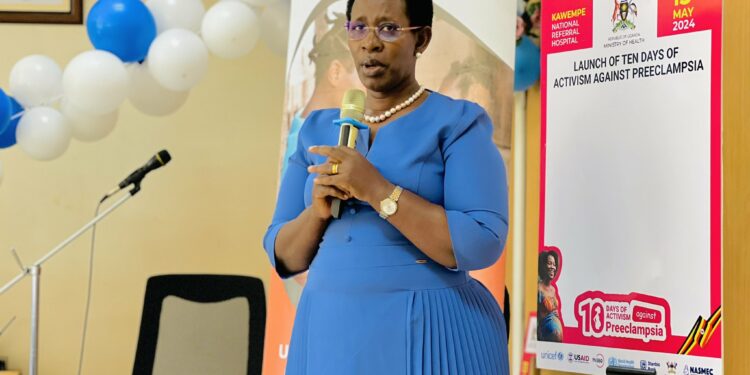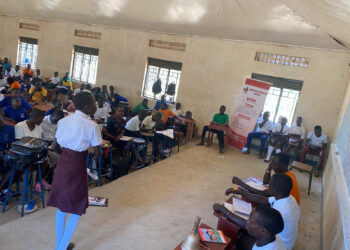The Permanent Secretary of the Ministry of Health Dr. Diana Atwine, delivered a powerful speech at the United Nations High-level meeting on combating Antimalarial Resistance in New York, urging global leaders to take immediate action against the growing threat of antimicrobial resistance (AMR).
Speaking on the sidelines of high-level discussions on global health security, Dr Atwine emphasized the need for commitment beyond words, calling for tangible action plans at both national and global levels.
“Time is of the essence, and we must all commit to confronting the challenge of antimicrobial resistance head-on,” Dr. Atwine stated. “This is not about how many meetings we hold or how many presentations we make. It’s about what each of us commits to do differently to protect the future of our countries and the world.”
She expressed concern that while much is being done globally, the results are often not impactful enough. Dr. Atwine questioned the effectiveness of previous initiatives, urging countries to review their successes and shortcomings. “We need to ask ourselves: What has worked? What has not worked? What have we planned, and what have we done? Big statements don’t translate to action on the ground unless backed by commitment and execution,” she remarked.
Dr Atwine highlighted the urgency of addressing AMR, labelling it a “global health security issue.” She warned that resistant strains of bacteria, like staphylococcus, could lead to epidemics capable of wiping out entire generations if not taken seriously. She emphasized the need for countries to incorporate AMR into their national health plans, calling it a “time bomb” that requires immediate action.
A key aspect of her address focused on the importance of data-driven decision-making. “Research and development cannot be left solely to pharmaceutical companies,” Dr. Atwine said, lauding academia for its critical role in gathering data and informing policy decisions. “We need reliable data presented to national policymakers to analyze the gravity of the situation and create actionable, smart national work plans.”
She also touched on the varying challenges different countries face, particularly those affected by war and conflict, noting that the global response must be tailored to each country’s unique circumstances. “Your approach in America or Asia may not be the same as in Uganda, Sudan, or Nigeria. We need to assess the situation on the ground before deciding the best way forward.”
She also underscored the impact of climate change on the rise of antimicrobial resistance. She stressed that even the best healthcare systems are being challenged as bacteria and viruses adapt and evade medical interventions. “Climate change is a big driver in altering the nature of viruses and bacteria, and even with the best practices, we are seeing unprecedented challenges,” she cautioned.
She reiterated that the solution lies in clear communication, a shift in community mindset, and national-level commitment. “We must act now, or the consequences will be devastating for all of us,” she noted.
Meanwhile, Dr Atwine’s call underscores the urgency of the issue, warning that without immediate and coordinated action, the world risks a future where common infections are untreatable, and routine medical procedures become life-threatening.
Do you have a story in your community or an opinion to share with us: Email us at editorial@watchdoguganda.com













